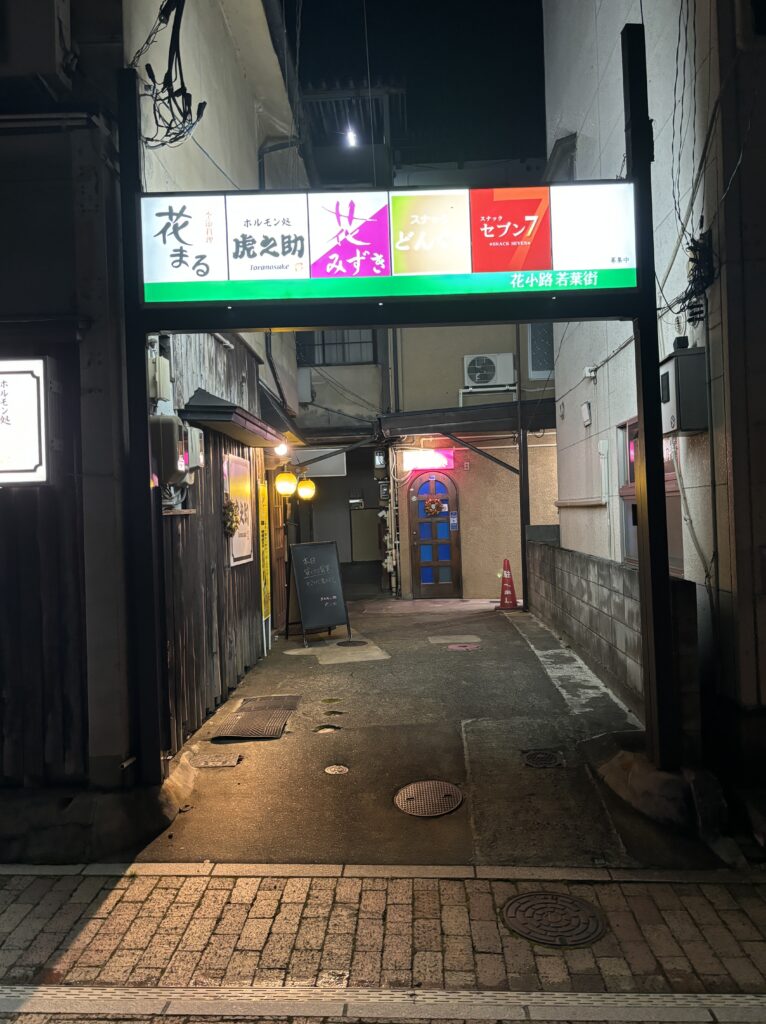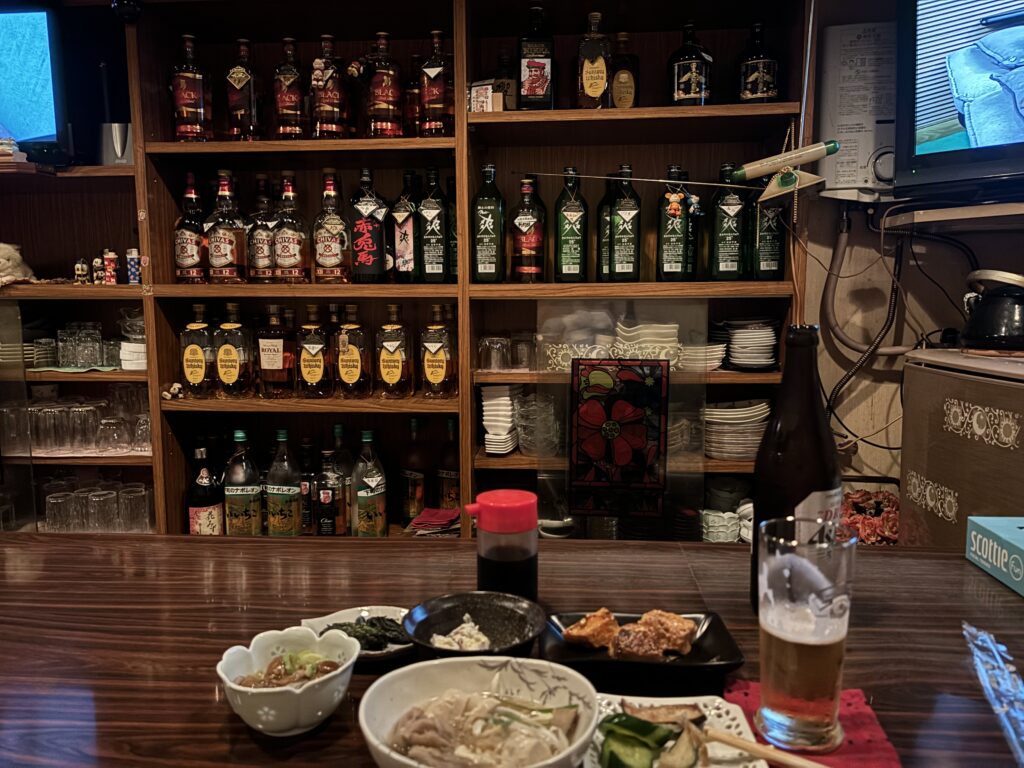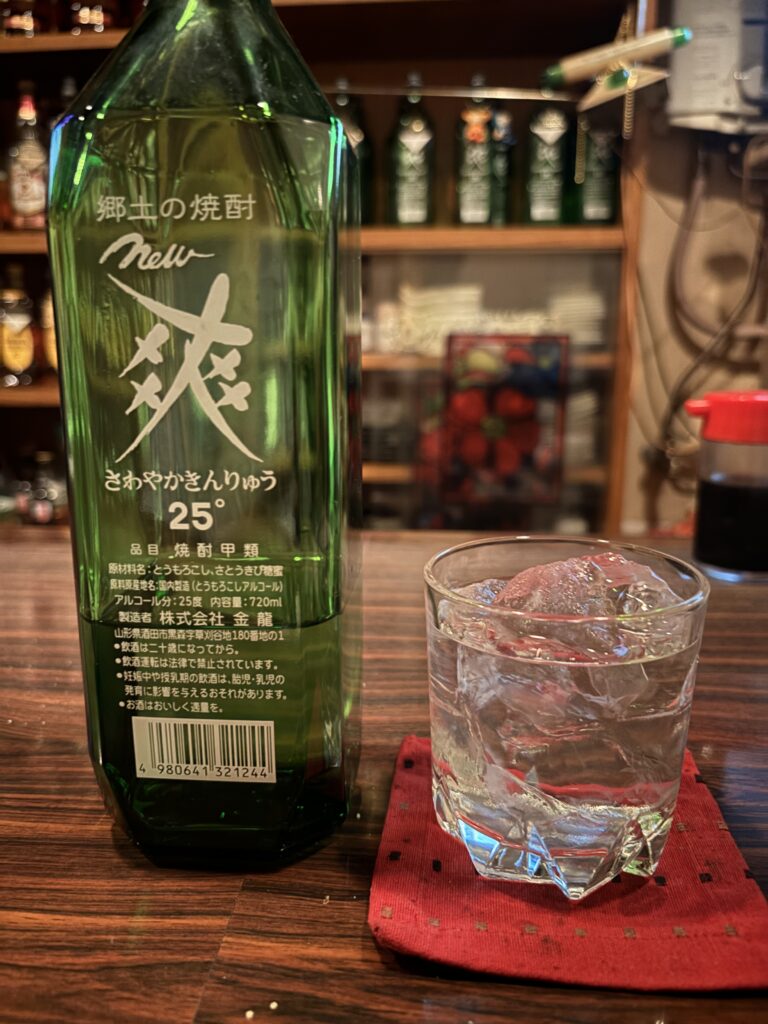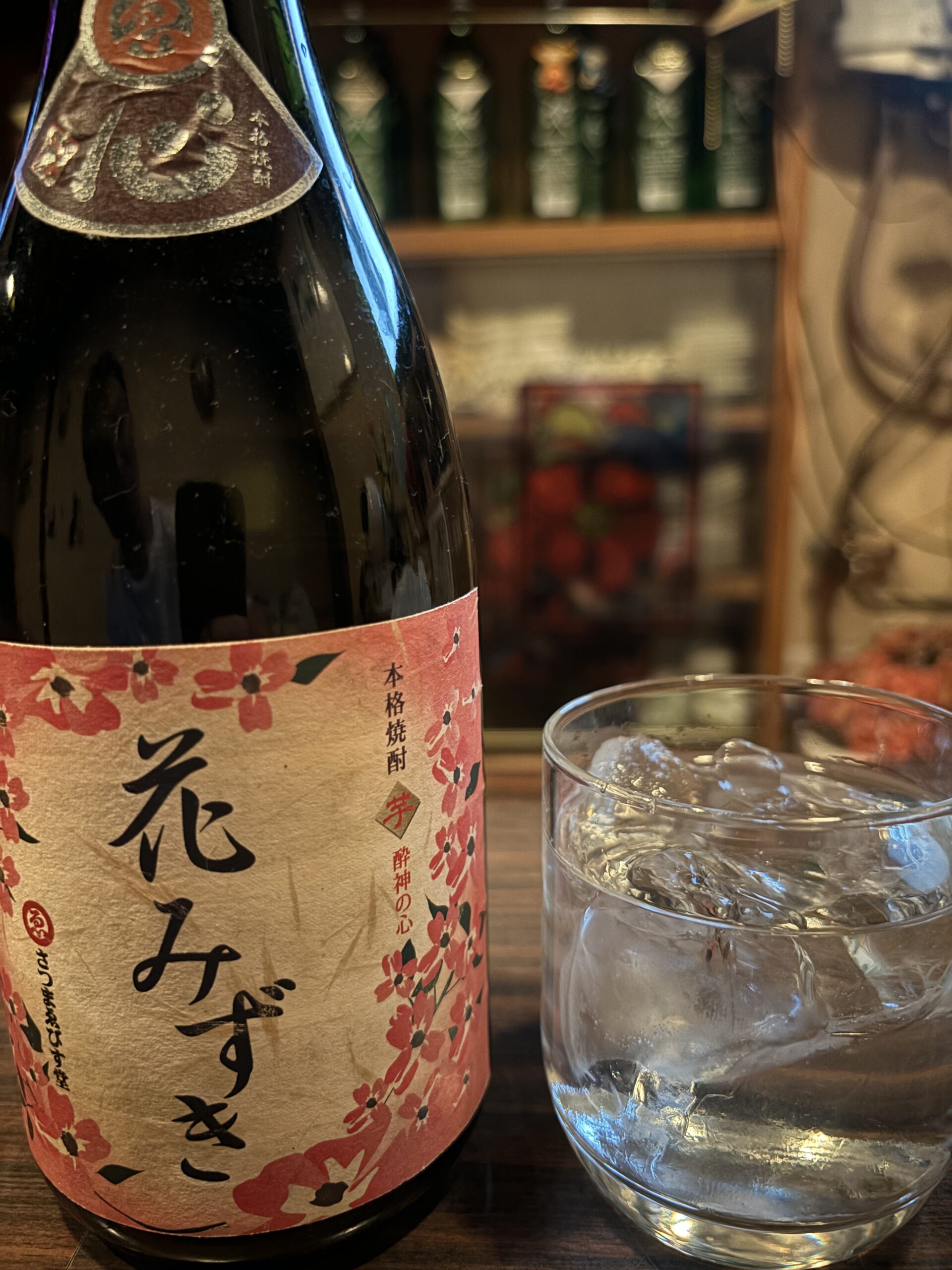After a serene autumn day exploring Mount Gassan and relaxing at Hijiori Hot Spa, I found myself back in Yamagata Station, yearning for a taste of local nightlife. Drawn to the less-trodden path, I ventured into HanaKoji, or “Flower Alley,” a quaint neighborhood away from the station’s bustle. My instincts led me to HanaMizuki, an early-hours bar that promised more than just libations—it offered a gateway into the heart of Yamagata’s fading bar culture.

HanaMizuki defied expectations from the moment I stepped inside. Unlike typical snack bars with their focus on drinks and karaoke, this establishment presented itself as a culinary haven. The Mamasan, a culinary virtuoso, served up an array of delectable dishes included in the basic fee—a rarity that transformed the experience into something akin to a karaoke café with gourmet flair. The highlight of my liquid exploration was a local shochu, distilled from corn, its clean, spicy notes reminiscent of an unaged bourbon. This unique blend of food, drink, and song created an atmosphere that was both comforting and invigorating.

As the night unfolded, the Mamasan shared a poignant tale echoing throughout Japan’s smaller towns. The regular patrons, now retired, visit less frequently, while younger generations gravitate towards trendier establishments near the station. This shift leaves places like HanaMizuki in a precarious position, their future uncertain as both proprietors and clientele age. The story stirred in me a resolve to return, to breathe life into these bastions of local culture. For in these hidden corners, one finds the true essence of a place—a richness that, once lost, can never be recreated. These local haunts, like fine wine, require time to develop their unique character, and their disappearance would leave an irreplaceable void in the tapestry of Yamagata’s cultural landscape.

the location of HanaKoji bar district in Yamagata, where this karaoke bar HanaMizuki is located.
Share via:
